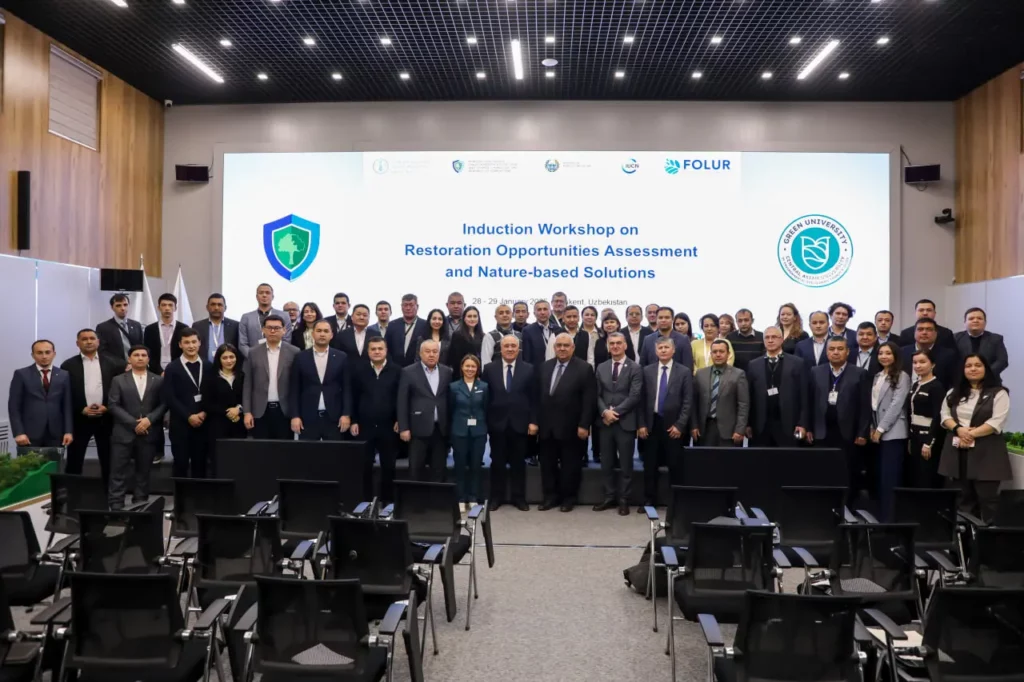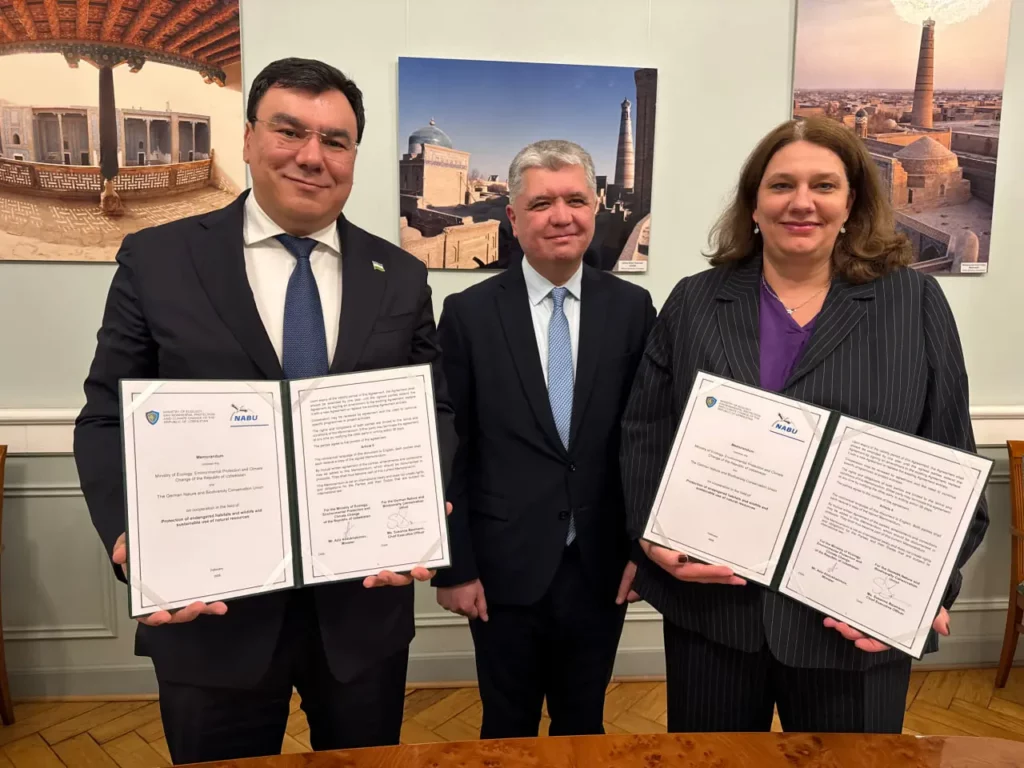From 28 to 29 January, the Central Asian University of Environment and Climate Change Studies (Green University) is hosting an introductory workshop on Restoration Opportunity Assessment (ROAM) and Nature-Based Solutions (NbS).

The event was organized within the framework of the project “Program for assessing the impact of food systems on land use and land restoration in Uzbekistan” (FOLUR) by the International Union for Conservation of Nature (IUCN) and the Research Institute of Environment and Nature Protection Technologies under the Ministry of Ecology, Environmental Protection and Climate Change. The seminar is attended by representatives of ministries and departments of the republic, international organizations, key experts and other stakeholders.
“Agriculture is at the heart of some of the biggest challenges of our time. As one of the largest land users in the world, harmonizing agricultural processes with nature is critical to ensuring food system security, preserving biodiversity and increasing resilience to climate change,” said Oliver Avramoski, Director of the IUCN Regional Office for Eastern Europe and Central Asia (EECA), at the opening of the workshop. “IUCN is committed to supporting this transformational journey in Uzbekistan by promoting and applying the IUCN Global Standard for Nature-Based Solutions (NbS) and the Restoration Opportunity Assessment Methodology (ROAM).”
The FOLUR project in Uzbekistan demonstrates how NbS, supported by tools such as ROAM, can transform degraded landscapes into productive ecosystems. By applying ROAM, stakeholders can identify the most promising areas for restoration and ensure that actions comply with the principles of NbS, as defined in the IUCN Global Standard for NbS. Implementation of NbS promotes restoration of degraded soils, increases fertility, reduces erosion and improves water conservation.
This approach addresses agricultural challenges such as land degradation and declining productivity, while delivering co-benefits such as carbon sequestration, increased biodiversity and community resilience. It demonstrates a forward-looking vision of sustainable agriculture in which nature-based solutions contribute to healthy ecosystems and long-term food security.
The workshop brought together stakeholders to identify priorities for action for the landscapes of Uzbekistan based on these two strategies and tools. In addition to presenting the ROAM methodology, the workshop also provided training on the IUCN Green List, a global benchmark for effective and equitable territorial conservation. Improving the management of protected areas in target regions maintains ecological integrity and connectivity and ensures access to ecosystem services for local communities and farms in the country. Promoting sustainable agricultural practices and improving ecosystem management through an integrated approach to land use planning and the implementation of nature-based solutions will contribute to long-term environmental and socio-economic sustainability in the country.
As Uzbekistan embarks on this path of recovery, the workshop serves as both a starting point and a call to action: to conserve natural resources, strengthen agricultural resilience, and ensure a sustainable future for future generations.
https://gov.uz/ru/eco/news/view/34346



